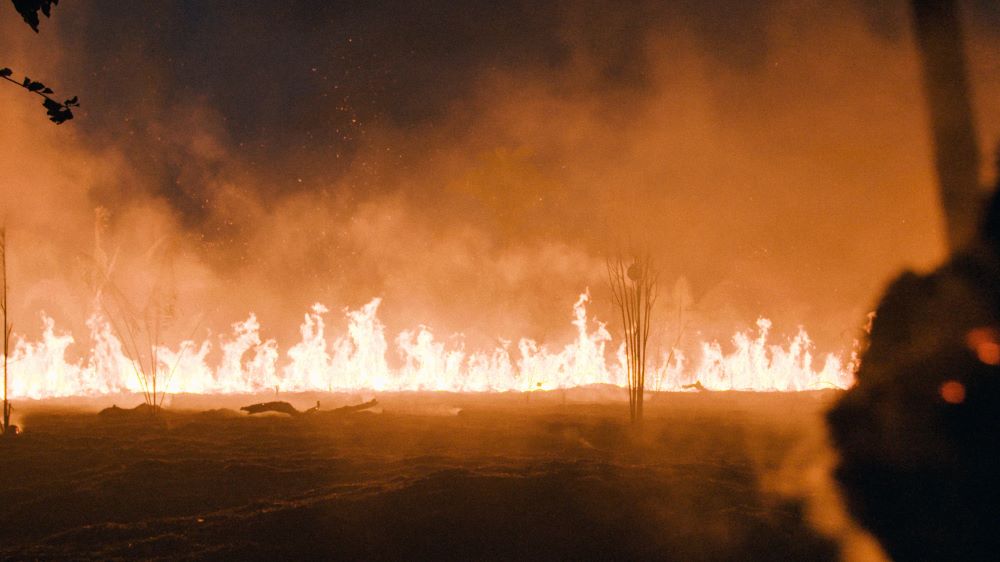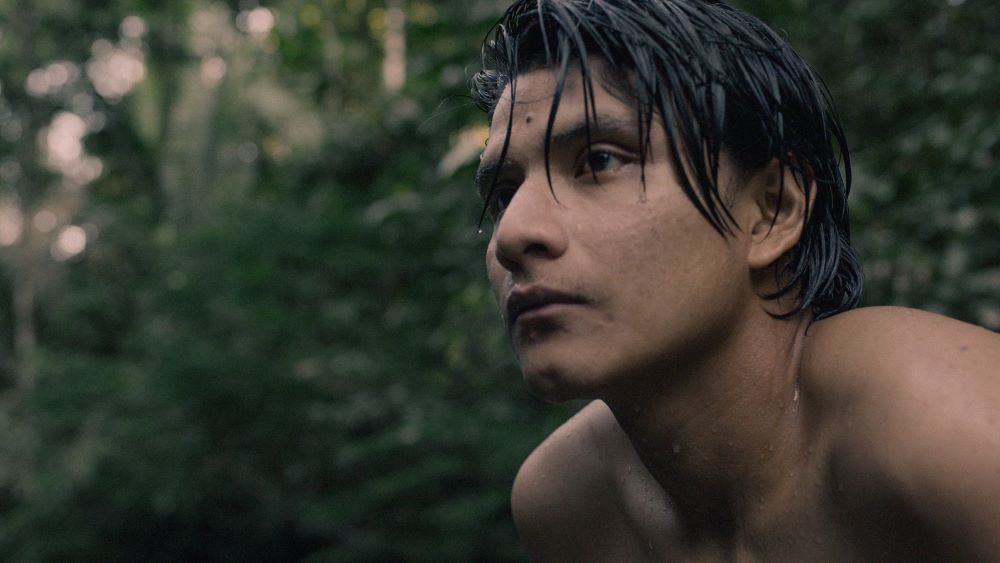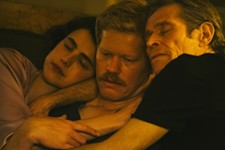The Burning World: Into The Territory With Alex Pritz
Documentary explores the Uru-Eu-Wau-Wau tribe's fight for the Amazon
By Richard Whittaker, 5:00AM, Fri. Aug. 19, 2022

For years, people in the Northern Hemisphere have presumed they know how to save the Amazon. But if The Territory, the new documentary from Alex Pritz, holds any lesson, it’s that it’s probably the Indigenous people who live there who should be given the lead.
The Territory (in theatres this week from National Geographic Documentary Films) focuses on the Uru-Eu-Wau-Wau people of the Uru-Eu-Wau-Wau Indigenous territory, in the northwestern Brazilian state of Rondônia.
The tribe first came into contact with non-natives in 1981, and in archival footage they are shown at that first encounter, looking slightly baffled at the gifts of knives and cooking pans these strange visitors are bringing them.
But throw away any "noble savage" stereotypes. Forty years later, the Uru-Eu-Wau-Wau are struggling to retain their lands and their traditions in the face of invaders – settlers given the not-so-subtle approval by the fascistic administration of President Jair Bolsonaro to drive the tribes out, burn the forests, and turn the region into cattle territory. However, the Uru-Eu-Wau-Wau are using every tool at their disposal: their knowledge of the forest, their social media presence, drones, cameras, political lobbying.
Pritz first came across the conflict through reading about the work of an activist, Neidinha Bandeira, who was advocating for and working with the Uru-Eu-Wau-Wau "in a really hostile environment – this really conservative, pro-agribusiness, anti-environmentalist part of the country – and not just doing this work but doing it loudly and proudly in public as this 60-year-old woman.
However, as he got deeper into the story, he became increasingly fascinated by the Uru-Eu-Wau-Wau themselves. He said, "Bolsonaro would denigrate these people as 'cellphone Indigenous,' meaning that if you engage with technology, how can you possibly be Indigenous?' Because Indigenous people are in the forest, in loincloths." In other words, the government would try to delegitimize any Indigenous people who dared stand up for themselves using the tools of the 21st century, and Pritz called that a "false binary" that the young members of the tribe "really rally against through social media."
Austin Chronicle: It's one thing to look at a story as a theoretical, but you're dropping into one of the most inflammatory periods in Brazilian history, at a point where you have the very real threat of an incoming dictator.
Alex Pritz: Top of our mind from the beginning of production was how to keep the people we're working with safe, how to keep ourselves safe in a really hostile environment. We knew that we wanted to chart the political changes that were going to occur with this new administration as the backdrop to this local conflict. We didn't want to center on any particular policy decisions, but on how the rhetoric itself was inflaming and emboldening these settlers to go out and commit these illegal acts.
We also had a deadline. We wanted this film to be out and ready in the world in order to make a difference in the way that people perceive this administration, and enter that conversation about their legacy to the Amazon and their treatment of Indigenous people.
We're dropping into the middle of the belly of the beast. We're releasing the film into Brazilian cinemas in early September, just three weeks before the election, and it feels like a really critical period for the forest and for the all the people involved in our film. It's a big concern, but also an opportunity to be involved in this conversation.

AC: A lot of people, if you tell them, "I'm making a documentary about an Indigenous tribe in Brazil who only had first contact with the government in living memory," they'll wander into the film with a very set idea of what those tribes will be like. And, let's be honest, it's loincloths and spears.
AP: Yeah, very primitive.
AC: And they're really not that at all.
AP: It's such an interesting period that this group is in right now. It's a massive transformation, and you can see it between the generations.
When I first arrived, the conversations I was having were largely with the elders, who speak a language spoken by something in the low thousands of people left on Earth – and through a translator, obviously. That's just how you begin those conversations, and I was originally seeing it in a different way. I was thinking about their lives and experiences pre-contact, and then I got to know this younger generation like Bitaté, and the teenagers who were media-savvy, politically literate, all up on it, living fully digital lives. They ended up getting internet a year into when we were there filming, and it changed so much about everybody's life, and that changed my understanding of who these people [are], and what their challenges are going forward.
AC: When did you first realize that Bitaté was who you could hang the film off? He's so camera-ready in so many ways – he's young, and he's handsome, and he's charismatic, he's very media savvy, but he also understands that he doesn't have to abandon core elements of his culture.
AP: He is such a remarkable human being. I cannot fathom the amount of responsibility and pressure that comes from being a teenager going to high school classes in a local white town, and at the same time being the leader of your people, protecting an area of rainforest that's crucial to the entire Amazon – and by extension the entire planet. It's a massive weight of responsibility, and he handled it with such dignity and poise.
Originally we were following someone else in the community, prior to him becoming leader. When he mentioned that he might become leader, all of our ears picked up.
AC: At the same time, you humanize the invaders. Their motivations are very identifiable – "I want a home, I want a farm" – and in most circumstances their struggles would be seen as heroic behavior.
AP: It's often outside filmmakers that fall prey to that simplistic thinking, and come in and want to understand this foreign Indigenous experience, and in the process exotify it. In some way, the harder thing to do is look at these settlers that share a lot of cultural history with myself as a white American, and turn the magnifying glass back on the colonial process, and these ideas of manifest destiny – these animating principles that laid the backdrop for the national mythology of our country, and are similarly the gas in the tank for these settlers that are heading north into the Amazon.
The Territory is in theatres now. Read our review and get showtimes here.
A note to readers: Bold and uncensored, The Austin Chronicle has been Austin’s independent news source for over 40 years, expressing the community’s political and environmental concerns and supporting its active cultural scene. Now more than ever, we need your support to continue supplying Austin with independent, free press. If real news is important to you, please consider making a donation of $5, $10 or whatever you can afford, to help keep our journalism on stands.
June 27, 2024
June 28, 2024
The Territory, Alex Pritz, Uru-eu-wau-wau, Brazil, Amazon, Amazon Land Documentary








